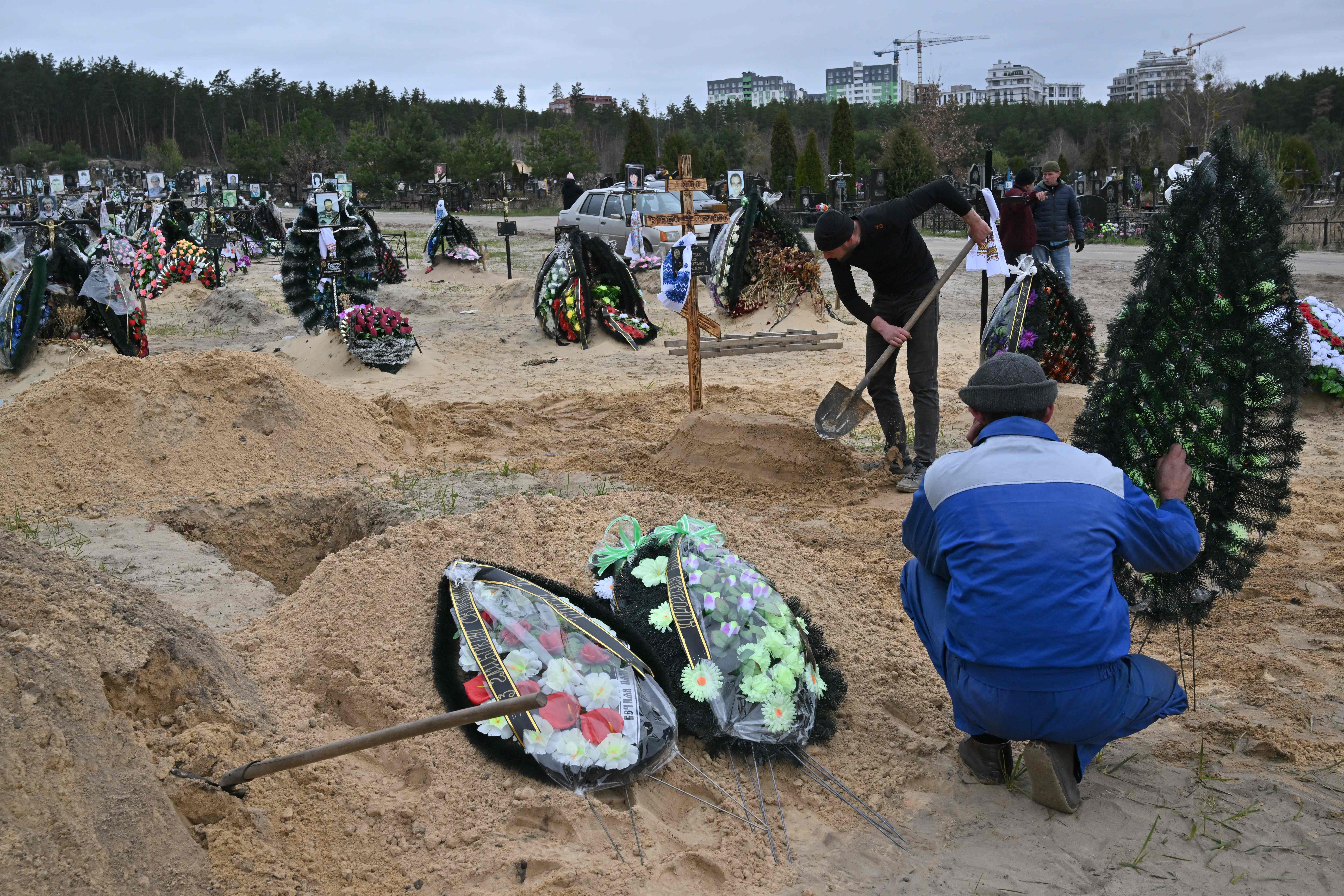Journalists reporting on the Ukraine crisis must collect evidence of potential war crimes
Now, more than ever, we journalists need to think beyond the duties we have of striving to be part of a media that people can trust – and think about the bigger picture, writes Bel Trew


A body of a teenager, hands bound, shot in the back in the woods near a Russian trench. An underground torture chamber where eight people say they were held and abused below a railway station. Shoppers ripped apart by banned cluster munitions as they bought supplies. Children shelled as they escaped a brutal siege.
Throughout the past six weeks I have spent in Ukraine, on almost every street in every town affected by the Russian invasion, I’ve stumbled across testimonies of likely violations of international law and possible war crimes. It’s bewildering.
As a journalist covering conflict, accuracy is of course key, as is properly documenting and verifying the stories that you are told. But now more than ever, we journalists need to think beyond the duties we have of striving to be part of a media that people can trust – and think about the bigger picture, including potential war crime trials.
That means collecting evidence in a way that is admissible in legal proceedings. That means potentially being in a position to be a witness in court. I am not trying to say that as journalists we have to take a particular political stand, but we must make a moral one. As humans and witnesses, we have a moral obligation to take our privileged role of being there on the ground – working – seriously.
And so we need, as journalists, to start to archive the reporting done for our stories properly and in a way that could be accessed by experts if needed – including keeping original audio recordings, coordinates of evidence we find. This includes photos with metadata – if and when possible.
We need to think about the questions we ask – beyond what makes a powerful quote, or an engaging turn of phrase – for the investigations of the future. Rather than fetishising violence for a punchy video or article, we need to interrogate what our responsibilities are and what the point is of everything we do. Otherwise, aren’t we just voyeurs trying to sell papers?
Yours,
Bel Trew
International correspondent



Join our commenting forum
Join thought-provoking conversations, follow other Independent readers and see their replies
Comments